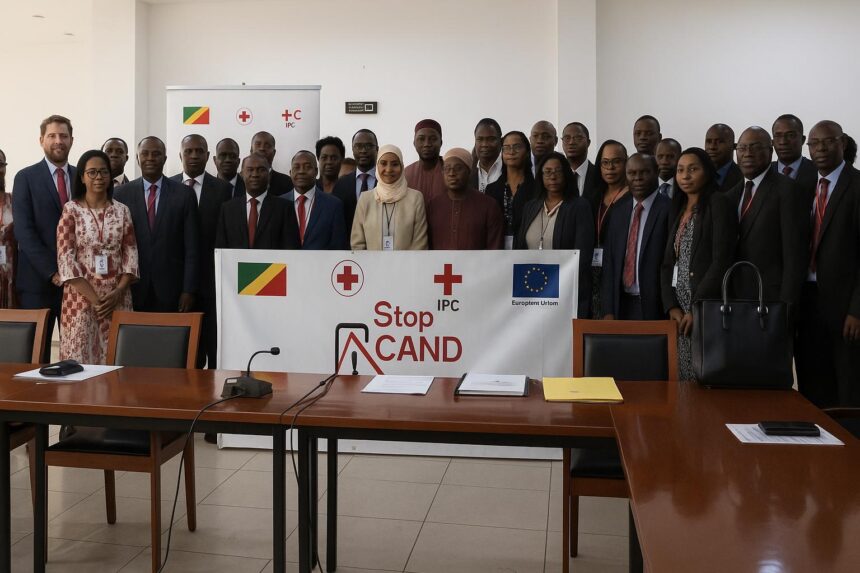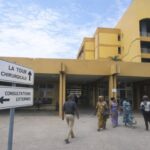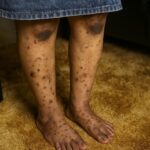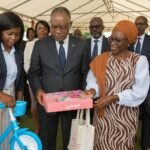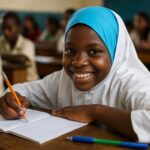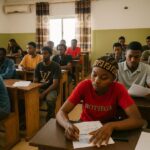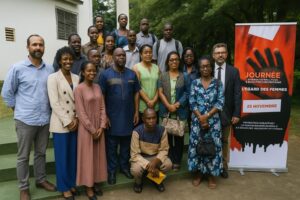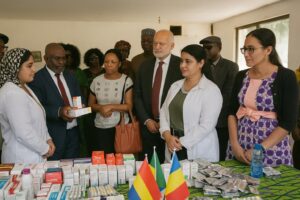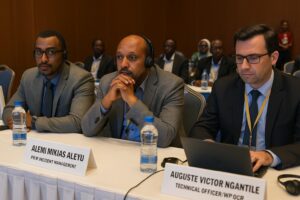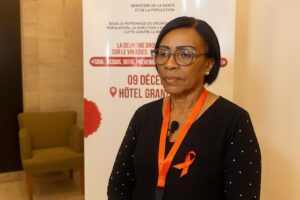Emergency Fund Unveiled in Brazzaville
Applause filled a conference room in Brazzaville as the Congolese Red Cross, backed by the International Federation of Red Cross and Red Crescent Societies, introduced a Disaster Relief Emergency Fund designed to reinforce the national battle against a lingering cholera outbreak.
- Emergency Fund Unveiled in Brazzaville
- Scope of the Cholera Challenge
- Government Leadership and Public Health Capacity
- European Union Support Strengthens Response
- Community Actions Focus on Water and Hygiene
- Attention to High-Risk Locations
- Regional Context Adds Urgency
- Building Resilience Beyond December
- Voices from the Field
- Humanitarian Care with Dignity
Launched on 26 August, the mechanism, known by its French acronym DREF, channels rapid technical and financial support to local volunteers, medical teams and outreach workers, ensuring that urgent supplies and crucial information can reach affected communities without the bureaucratic delays that often hamper emergency interventions.
Scope of the Cholera Challenge
The Ministry of Health and Population, speaking through chief of staff Donatien Mounkassa, reminded participants that cholera remains both preventable and treatable, yet the current wave has produced about 500 cases and 35 deaths, a fatality rate that officials describe as worryingly high.
Although the original epicentre on Mbamou Island is showing early signs of regression, fresh infections are now reported in Mossaka, Loukoléla and neighbouring villages, highlighting how quickly waterways and trade routes can shift the disease’s trajectory within the Republic of Congo’s riverine districts.
Government Leadership and Public Health Capacity
Health authorities credit swift presidential guidance for enabling a coordinated response that links ministry specialists, the Red Cross network and local administrations, creating what one senior doctor called ‘a single chain of command that saves time and lives’ while respecting each partner’s mandate.
Recent drills simulating patient surges and water-borne contamination, officials say, have improved readiness at treatment centres in Brazzaville and the Cuvette, where staff now practise standardised triage, intravenous rehydration and laboratory confirmation protocols drawn from lessons during past outbreaks.
European Union Support Strengthens Response
International solidarity took a practical turn when European Union envoy Anne Marchal announced a fresh envelope of 220 000 euros, close to 140 million CFA francs, earmarked to reinforce the DREF operation and demonstrate the bloc’s stated commitment to shared health security.
In concrete terms, those resources will finance clean-water kiosks, hand-washing stations and medical materials expected to benefit roughly four thousand residents in Brazzaville over the next four months, a period health planners see as decisive before seasonal rains intensify exposure to contaminated sources.
Community Actions Focus on Water and Hygiene
Community leaders, trained by the Red Cross, now walk door to door explaining the importance of boiling water, using oral rehydration salts and seeking care at the first sign of acute diarrhoea, a strategy that previously curbed cholera on both sides of the Congo River.
Radio spots in Lingala, Kituba and French reinforce the messages, while faith-based organisations integrate hygiene sermons into weekend services, illustrating the broad societal ownership that health sociologists often cite as critical for long-term change.
Attention to High-Risk Locations
Surveillance teams continue to monitor Mbamou Island, recognising that its river-border location and limited sanitation make it a bellwether for future spikes; success there, officials say, would signal that the wider response plan is on track.
Elsewhere, transport inspectors disinfect passenger boats at Mossaka and Loukoléla, and market supervisors encourage traders to separate drinking water from produce washing areas, small but visible adjustments that local newspapers have duly highlighted as examples of pragmatic public-private cooperation.
Regional Context Adds Urgency
Beyond national borders, the resurgence coincides with confirmed cholera cases in Angola’s Cabinda province and in Kinshasa and Equateur in the Democratic Republic of Congo, further underscoring why Brazzaville’s planners favour coordinated river surveillance rather than isolated district campaigns.
Regional health ministers are expected to review shared data in coming weeks, and diplomats suggest the meeting could streamline cross-border patient referrals, an approach that would align neatly with the African Union’s continental health security agenda.
Building Resilience Beyond December
Back in Brazzaville, planners already speak of consolidating gains once the four-month intervention ends, pointing to ongoing water-network extensions and a prospective national hygiene bill intended to lock proven measures into everyday regulations.
If those initiatives take hold, analysts argue, the recent tragedy could become a catalyst for stronger public health infrastructure, offering the Republic of Congo a durable shield against not only cholera but also other water-borne threats that climate variability may intensify.
Voices from the Field
Nurse Joséphine Makaya, stationed at the Tenrikyo Treatment Centre, described the shift: ‘Last month we received thirty cases in one weekend; after the hygiene teams arrived, that number halved,’ she said, crediting faster water-testing kits supplied through the DREF for earlier diagnostic decisions.
Equally optimistic, community organiser Samuel Dikouele noted that households now store chlorine tablets beside cooking salt. ‘People used to think cholera was a seasonal curse; today they see it as a solvable problem,’ he explained, urging peers to maintain vigilance even as case numbers decline.
Humanitarian Care with Dignity
The Red Cross headquarters emphasises that cholera care must walk hand in hand with dignity. Volunteers assemble patient kits containing soap, oral rehydration sachets and a small radio, an inclusion intended to keep isolated families informed and connected during mandatory hydration monitoring.

